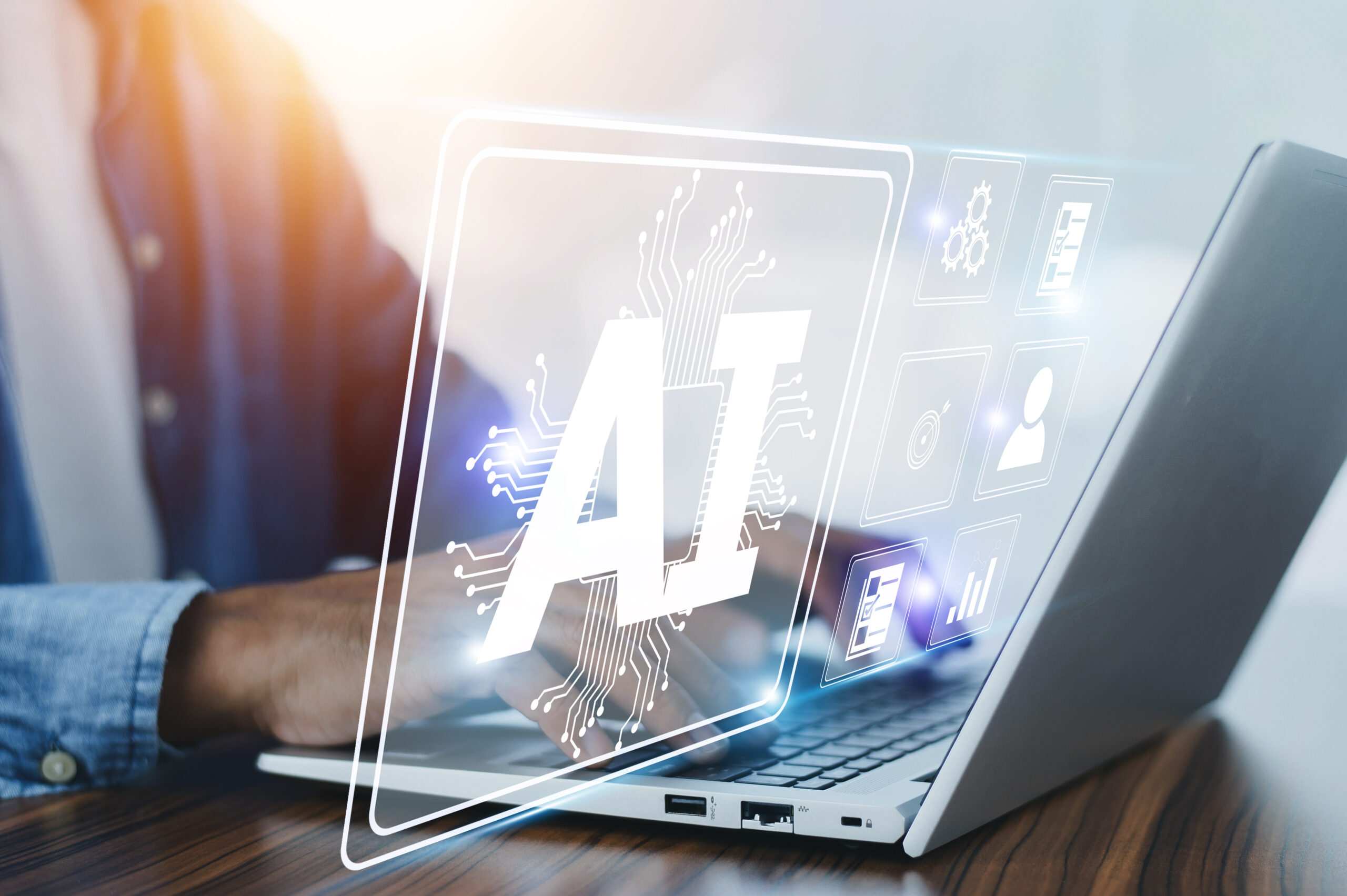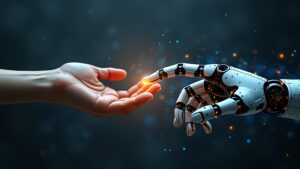
The Role of AI Marketing in Modern Strategies
Understanding AI Marketing
What is AI in Marketing?
Artificial intelligence (AI) in marketing refers to the use of advanced technologies like machine learning, natural language processing (NLP), and predictive analytics to enhance and automate marketing processes. These technologies enable marketers to analyze vast amounts of data, identify patterns, and make data-driven decisions with unprecedented speed and accuracy. AI applications in marketing range from chatbots that provide instant customer support to algorithms that predict consumer behavior and optimize ad targeting. By leveraging AI, businesses can create more effective campaigns, improve customer experiences, and achieve better results with fewer resources.
Table of Contents
Why AI is Transforming Marketing

AI marketing tools are revolutionizing because they address some of the industry’s most pressing challenges. First, it significantly improves efficiency by automating repetitive tasks like email scheduling, social media posting, and data analysis. This allows marketers to focus on strategy and creativity. Second, AI enables hyper-personalization, tailoring messages and offers to individual customers based on their preferences and behaviors. Finally, AI empowers marketers to make data-driven decisions by providing actionable insights from complex datasets. In a world where consumers expect instant, relevant, and seamless interactions, AI has become a cornerstone of modern marketing strategies.
Personalization at Scale: How AI Enhances Customer Experiences
AI-Driven Personalization
One of AI’s most transformative contributions to marketing is its ability to deliver personalization at scale. By analyzing customer data—such as browsing history, purchase behavior, and social media activity—AI can create highly targeted marketing campaigns. For example, e-commerce platforms use AI to recommend products based on a user’s past purchases and preferences. This level of personalization not only improves customer satisfaction but also increases conversion rates and brand loyalty. AI-driven personalization ensures that every interaction feels tailored, making customers feel valued and understood.
Dynamic Content Creation
AI marketing tools like chatbots and content generators are revolutionizing how businesses create and deliver content. Chatbots, powered by NLP, can engage with customers in real-time, answering questions, providing recommendations, and even completing transactions. Meanwhile, AI content generators can produce blog posts, ad copy, and social media updates that are customized for specific audiences. For instance, an AI tool might create different versions of an email campaign based on the recipient’s demographics or past interactions with the brand. This dynamic approach ensures that content resonates with its intended audience, driving engagement and results.
Case Studies of Successful AI Personalization
Several companies have successfully implemented AI to enhance personalization. Netflix, for example, uses AI algorithms to recommend shows and movies based on a user’s viewing history. Similarly, Amazon’s recommendation engine, powered by AI, accounts for a significant portion of its sales by suggesting products tailored to individual customers. These examples demonstrate how AI-driven personalization can lead to better customer experiences and improved business outcomes.
Predictive Analytics: Anticipating Customer Needs
What is Predictive Analytics?
Predictive analytics involves using historical data, machine learning algorithms, and statistical models to forecast future outcomes. In marketing, predictive analytics helps businesses anticipate customer behavior, identify trends, and make informed decisions. By understanding what customers are likely to do next—whether it’s making a purchase, abandoning a cart, or unsubscribing from a service—marketers can take proactive steps to influence those actions.
Applications in Marketing
Predictive analytics has numerous applications in marketing. For example, it can be used for lead scoring, which involves ranking potential customers based on their likelihood to convert. It also aids in customer segmentation, allowing businesses to group customers with similar characteristics and target them with tailored campaigns. Additionally, predictive analytics can optimize marketing efforts by identifying the best times to send emails, the most effective ad placements, and the highest-performing content formats. These insights enable marketers to allocate resources more effectively and maximize ROI.
Tools and Technologies
Several AI marketing tools are available to help marketers leverage predictive analytics. Platforms like Salesforce Einstein, HubSpot, and Google Analytics 360 offer advanced analytics capabilities, enabling businesses to gain deeper insights into customer behavior. These tools use machine learning algorithms to process large datasets and provide actionable recommendations, making it easier for marketers to implement data-driven strategies.
AI-Powered Automation: Streamlining Marketing Operations
Marketing Automation with AI
AI marketing is transforming operations by automating time-consuming tasks. For instance, AI can schedule and send emails, manage social media posts, and optimize ad placements without human intervention. This not only saves time but also ensures consistency and accuracy. Marketing automation platforms like Marketo and Mailchimp use AI to analyze campaign performance and suggest improvements, helping businesses achieve better results with less effort.
Chatbots and Virtual Assistants
AI-powered chatbots and virtual assistants are becoming essential tools for customer service and lead generation. These tools can handle a wide range of tasks, from answering frequently asked questions to guiding customers through the purchasing process. For example, a chatbot on an e-commerce site might help a customer find a specific product, check its availability, and complete the transaction—all in real-time. By providing instant, 24/7 support, chatbots enhance customer satisfaction and free up human agents to focus on more complex issues.
Improving ROI Through Automation
Automation not only streamlines operations but also improves ROI. By reducing manual labor and minimizing errors, AI-driven automation lowers operational costs. Additionally, it enables businesses to scale their marketing efforts without a proportional increase in resources. For example, an AI marketing tool can manage thousands of personalized email campaigns simultaneously, something that would be impossible for a human team to achieve. This efficiency translates into higher returns on investment and more effective marketing strategies.
AI in Content Marketing: From Creation to Distribution
AI Content Creation Tools

AI is revolutionizing content marketing by making it easier to create high-quality content at scale. Tools like ChatGPT, Jasper, and Writesonic can generate blog posts, ad copy, and social media updates in minutes. These tools use advanced NLP algorithms to produce content that is not only grammatically correct but also engaging and relevant. For example, a marketer could use an AI tool to draft a blog post outline, saving hours of work and allowing them to focus on refining the final product.
Content Optimization with AI
AI also plays a crucial role in optimizing content for SEO, readability, and engagement. Tools like Clearscope and Surfer SEO analyze keywords, search intent, and competitor content to provide recommendations for improving a piece of content’s performance. Additionally, AI can assess factors like sentence structure, tone, and formatting to ensure that content resonates with its target audience. This level of optimization helps businesses rank higher in search results and attract more organic traffic.
AI in Content Distribution
Once content is created, AI ensures it reaches the right audience through targeted distribution. Platforms like Facebook Ads and Google Ads use AI algorithms to identify the most relevant audiences for a campaign, optimizing ad placements and budgets in real-time. Similarly, email marketing tools use AI to determine the best times to send messages and the most effective subject lines. By automating these processes, AI maximizes the impact of content marketing efforts.
Ethical Considerations in AI Marketing
Data Privacy and Security
As AI becomes more integrated into marketing, concerns about data privacy and security are growing. AI marketing systems rely on vast amounts of customer data to function effectively, raising questions about how this data is collected, stored, and used. Marketers must ensure compliance with regulations like GDPR and CCPA to protect customer information and maintain trust. Transparency and ethical data practices are essential for building long-term relationships with customers.
Bias in AI Algorithms
Another ethical challenge is the potential for bias in AI algorithms. If an AI system is trained on biased data, it may produce discriminatory outcomes, such as excluding certain demographics from targeted campaigns. To mitigate this risk, marketers should regularly audit their AI systems and use diverse datasets for training. Addressing bias is not only an ethical imperative but also a business necessity, as inclusive marketing strategies are more effective in reaching diverse audiences.
Balancing Automation and Human Touch
While AI offers numerous benefits, it’s important to maintain a balance between automation and human interaction. Over-reliance on AI can make marketing feel impersonal, alienating customers who value authenticity and human connection. Marketers should use AI to enhance, not replace, human creativity and empathy. For example, while an AI tool might generate a campaign draft, a human marketer should refine it to ensure it aligns with the brand’s voice and values.
The Future of AI in Marketing
Emerging Trends in AI Marketing
The future of AI marketing is filled with exciting possibilities. Emerging trends include voice search optimization, augmented reality (AR) experiences, and AI-driven influencer marketing. For instance, voice assistants like Alexa and Siri are changing how consumers search for information, requiring marketers to adapt their SEO strategies. Similarly, AR applications allow customers to “try before they buy,” creating immersive shopping experiences. These innovations are set to redefine the marketing landscape in the coming years.
Preparing for an AI-Driven Future
To stay ahead in an AI-driven world, marketers must embrace continuous learning and experimentation. This includes investing in AI tools, upskilling teams, and staying informed about the latest trends and technologies. Businesses should also focus on integrating AI marketing into their existing workflows, ensuring a seamless transition that enhances rather than disrupts operations.
The Role of Human Creativity
Despite AI’s capabilities, human creativity remains irreplaceable. AI can analyze data and generate ideas, but it lacks the emotional intelligence and cultural understanding that humans bring to the table. Marketers should view AI as a collaborator rather than a competitor, using it to amplify their creative efforts and achieve greater impact.
Frequently Asked Questions
How is AI used in marketing?
AI is utilized in marketing to analyze large datasets, predict consumer behavior, and automate tasks. Applications include personalized recommendations, customer segmentation, chatbots for customer service, and programmatic ad buying. For instance, AI can optimize ad placements and targeting, leading to more effective campaigns.
Can you make money with AI marketing?
Yes, AI marketing can increase profitability by improving campaign efficiency, enhancing customer targeting, and automating repetitive tasks. Companies like Salesforce and Microsoft are investing in AI to boost revenues, indicating its potential to drive financial growth.
Is AI marketing worth it?
Investing in AI marketing is worthwhile due to its ability to enhance efficiency, personalization, and decision-making. AI tools can automate complex processes, analyze consumer data, and optimize strategies, leading to improved ROI. However, it’s essential to balance AI integration with human oversight to maintain creativity and authenticity.
Is marketing being replaced by AI?
<p>While AI automates certain marketing tasks, it is not replacing marketing professionals. AI serves as a tool to augment human capabilities, handling data analysis and routine tasks, allowing marketers to focus on strategic and creative aspects. The integration of AI is transforming the industry, but human insight remains crucial.</p>